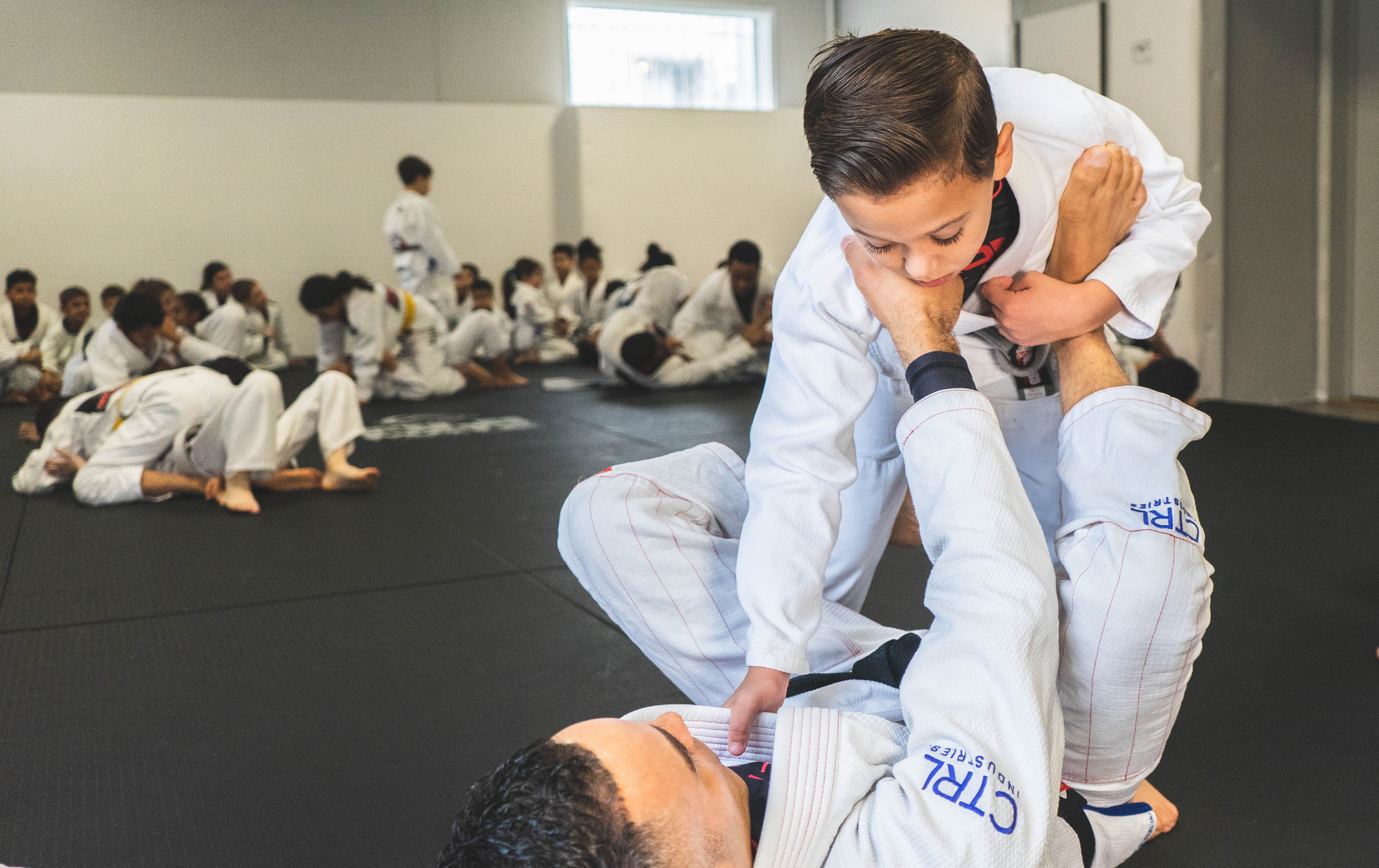
Why BJJ is Safe for your Kids
Posted: March 22, 2021
Why BJJ is Safe for your Kids
When it comes to youth sports, safety is a concern. Sports are a great way to teach your kids valuable lessons; how to make friends, be active, and stay healthy. Jiu-jitsu is one of the most fun, engaging and safe sports for children. Jiu-jitsu is a martial art, and martial arts offer many valuable lessons. You might be a parent who is looking to sign their kids up for Jiu-jitsu, and you may have concerns about the safety of BJJ. This post will show you that Jiu-jitsu is a safe and beneficial activity for your kids.
GROUND TRAINING
The ground is a very natural environment for kids. It is their first teacher. Babies use it to learn and develop early movement skills like crawling, rolling over, sitting upright, etc. As they get older, young children are already practicing some of the core movements in Jiu-jitsu without being aware of it. Brazilian Jiu-Jitsu will further progress their skill level and competency on the ground and also make them better movers. That is a crucial aspect of Jiu-jitsu because kids that are good “movers’’ are less prone to injuries on the mats and in life. The chances of your kids seriously getting hurt while practicing Jiu-jitsu on the ground are small. Academies usually teach ground-based techniques and are selective with standing techniques. They do not allow takedowns that can cause injuries. Injuries tend to happen in high impact scenarios, and Jiu-jitsu lacks this- except when someone gets thrown or slammed following a leg attack. Good Jiu-jitsu schools, however, have knowledgeable professors who control the class environment.
HARD WORK MINUS HIGH IMPACT:
Injuries may occur in high impact scenarios. Jiu-jitsu is a contact sport but lacks the high-impact aspect. Other sports such as American football allow striking or hitting. Young kids do not have the motor skills and experience to play it safely. Compared to sports where there is striking or collisions, in Jiu-jitsu it is difficult to get hurt even when grappling at a high intensity. In the case of a submission hold your child can submit by tapping and no one gets hurt. During Jiu-jitsu your child can work their butt off and get a great workout while having fun in a safe environment.
CONTROLLED ENVIRONMENT:
BJJ academies are very serious about children’s safety. Professors are always in control of their students and make sure that kids are treating each other with respect. The mat area where schools hold their classes is relatively small. This makes it easier for Jiu-jitsu instructors to keep an eye on their group of kids. Parents can also be present at the practice sessions.
THE GI:
Practicing Jiu-jitsu in the Gi is excellent for kids. That is because the Gi allows either person to control and slow down the intensity and this naturally changes the dynamic of the “roll’’. Also, the extra material on top of the skin will protect your kids from getting scratches, burns, and cuts in case little Timmy forgot to trim his nails. Another benefit of training in the Gi is the development of grip strength which not many other sports can claim. A strong grip relates to health.
LEARNING THROUGH GAMES:
If you watch two children engage in grappling, it looks like a game. They resemble two young bears wrestling with each other, and calling it a fight would be an exaggeration. BJJ coaches make use of games and creative activities your that your kids can enjoy as they learn new skills. That is a crucial factor in the safety and development of kids. The best learning environment for young children does not put pressure on them to perform.
OVERALL:
Jiu-jitsu is one of the safest sports for young children. They will have fun, learn new skills, improve their coordination, get a great workout and most importantly remain safe. Avoiding high impact contact sports at a young age is beneficial for long-term results and health concerns. Brazilian Jiu-Jitsu appeals to young kids because it is ”cool”, non-intimidating, and safe.
Get Your Child Started TODAY with our TRIAL Introductory Lesson! Click HERE!